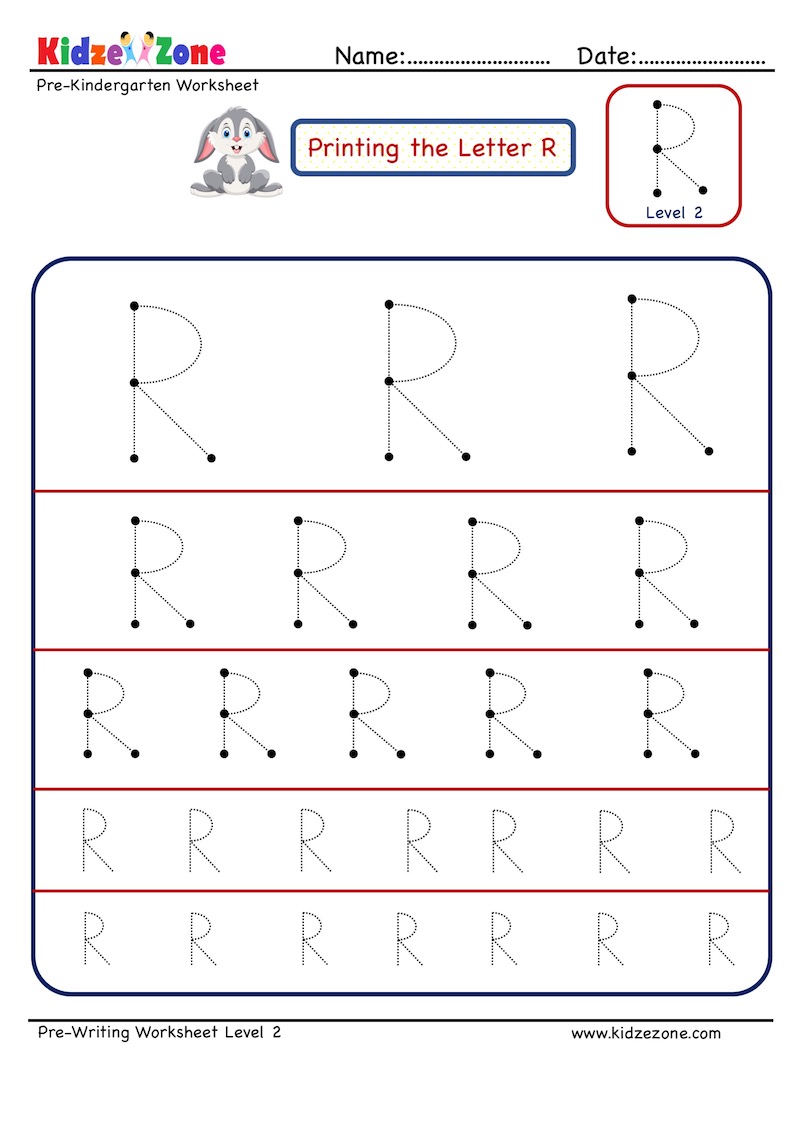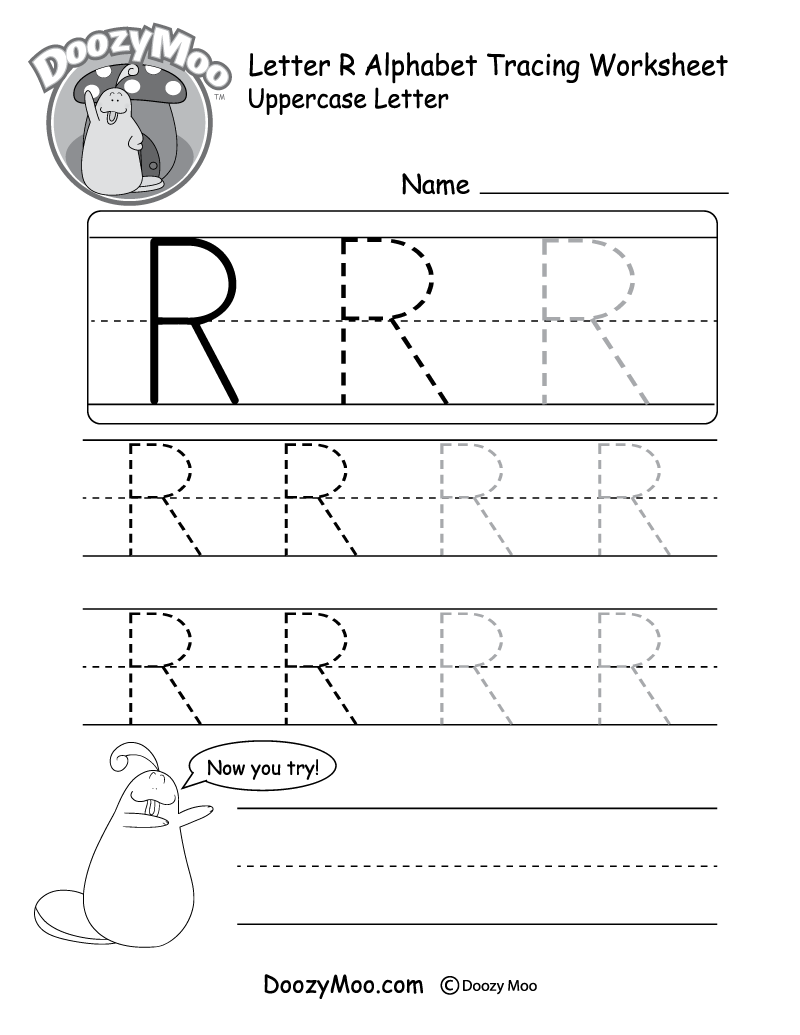Letter R Tracing
Do you struggle with teaching your child handwriting? Specifically, teaching them how to properly write the letter R? Look no further! In this article, we will explore the ins and outs of letter R tracing in the English language.
Pain Points of Letter R Tracing
Handwriting can be a challenging task for both children and adults. It requires fine motor skills and a lot of practice. Teaching a child how to write the letter R can be especially difficult due to its unique shape. Many children may struggle with making the rounded shape of the loop or remembering to add the diagonal line. Not knowing the proper technique can lead to frustration and ultimately, a lack of confidence in their handwriting abilities.
The Target of Letter R Tracing
The target of letter R tracing is to help children form muscle memory and improve their fine motor skills. By practicing tracing the letter R, they will learn the proper technique and gain confidence in their handwriting abilities.
Summary of Main Points
In summary, letter R tracing can be a difficult task for children, but with practice and the proper technique, they can develop their fine motor skills and gain confidence in their handwriting abilities. By consistently practicing tracing the letter R, children will improve their muscle memory and develop lifelong skills.
The Importance of Letter R Tracing
Letter R tracing is a crucial element to a child's development. As children grow and enter into school, they will be expected to have proper handwriting skills. Without proper instruction and practice, they may struggle to write legibly and may even fall behind in their studies.

Personally, I have found that incorporating letter R tracing worksheets into my child's daily routine has greatly improved his handwriting and confidence in school. By practicing tracing the letter R, he has developed muscle memory and learned the proper technique for forming the letter.
The Benefits of Letter R Tracing
Letter R tracing has numerous benefits for children. It helps to improve their fine motor skills, develops hand-eye coordination, and improves handwriting legibility. Additionally, it allows children to develop problem-solving skills as they figure out how to properly form the letter. Finally, it is a fun and interactive activity that children can enjoy while also learning a valuable skill.

Tracing Techniques for Letter R
There are a few different techniques that can be used when teaching a child how to trace the letter R. One technique involves breaking the letter down into simple shapes. For example, tracing a half circle for the loop and a diagonal line for the stem. Another technique involves using a highlighter to trace over the letter first, which will allow the child to see the proper formation of the letter before attempting to trace it themselves.

Tips for Successful Letter R Tracing
There are a few tips that can help make letter R tracing successful for children. First, make sure they are using the proper grip on their writing utensil. They should be using a tripod grip, where the pencil is held between the index finger, middle finger, and thumb. Additionally, allow children to trace the letter in a variety of ways, such as on a whiteboard or with a finger in sand. This will help to keep the activity fun and fresh while also reinforcing the technique.
Question and Answer Section
Q: How can I make letter R tracing fun for my child?
A: There are many ways to make letter R tracing fun for your child. You can try incorporating it into a game, such as writing out words or even their name. You can also use different colored pencils or markers to make it more visually appealing.
Q: At what age should I start teaching my child letter R tracing?
A: Children can begin learning how to trace the letter R at a young age, typically around 3-4 years old.
Q: What are some common mistakes children make when attempting to trace the letter R?
A: Common mistakes include not properly forming the loop or forgetting to add the diagonal line.
Q: How often should my child practice letter R tracing?
A: It is recommended that children practice letter R tracing at least once per day in order to develop muscle memory and reinforce the proper technique.
Conclusion of Letter R Tracing
Letter R tracing is an essential skill that children should learn in order to improve their handwriting and develop fine motor skills. By consistently practicing the technique and using different tracing techniques, children can gain confidence in their handwriting abilities and achieve academic success.
Gallery
Trace The Uppercase Letter R Worksheet Free Printables - Preschool Crafts
Photo Credit by: bing.com / letter worksheet uppercase trace printables worksheets preschool printable
Letter Tracing Worksheets (Letters K - T)

Photo Credit by: bing.com / tracing letter worksheet worksheets letters sheets handwriting englishforkidz alphabet printable preschool printables practice kindergarten choose board abc
Preschool Letter Tracing Worksheet - Letter R Different Sizes - KidzeZone

Photo Credit by: bing.com / tracing trace kidzezone learner 99worksheets
Alphabet Letters Tracing Worksheets

Photo Credit by: bing.com / abcworksheet
Uppercase Letter R Tracing Worksheet - Doozy Moo

Photo Credit by: bing.com / worksheets letter tracing worksheet uppercase capital letters lowercase moo doozy practice writing kids tracinglettersworksheets print cursive
